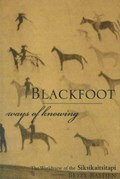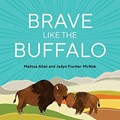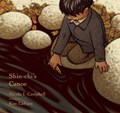Narrow Results By
- Adese, Jennifer 1
- Allan, Melissa 1
- Bastien, Betty 1
- Blondin, Walter; Blondin, George; Goose, Leanne; Mountain, Antoine; Stewart, Sarah; Yakeleya, Raymond; and Dene Elders; foreword by Blondin, Walter. 1
- Campbell, Nicola I. 1
- Larochelle, Catherine 1
- McKegney, Sam 1
- Wall Kimmerer, Robin 1
- Wuttunee Jobin, Shalene 1
- Yeoman, Elizabeth 1
Aboriginal TM : the cultural and economic politics of recognition
https://archives.whyte.org/en/permalink/catalogue25713
- Medium
- Library - Book (including soft-cover and pamphlets)
- Published Date
- 2022
- Author
- Adese, Jennifer
- Publisher
- Winnipeg, Manitoba, Canada : University of Manitoba Press
- Call Number
- 07.2 A3a
- Author
- Adese, Jennifer
- Publisher
- Winnipeg, Manitoba, Canada : University of Manitoba Press
- Published Date
- 2022
- Physical Description
- x, 260 pages : illustrations ; 24 cm
- Subjects
- Indigenous
- Indigenous Culture
- Indigenous People
- Indigenous Traditions
- Tourism
- Language
- Politics
- Abstract
- In Aboriginal™, Jennifer Adese explores the origins, meaning, and usage of the term "Aboriginal" and its displacement by the word "Indigenous." In the Constitution Act, 1982, the term's express purpose was to speak to the "aboriginal rights" acknowledged in Section 35(1). Yet in the wake of the Constitution's passage, Aboriginal, in its capitalized form, became far more closely aligned with Section 35(2)'s interpretation of which specific groups held those rights, and was increasingly used to describe and categorize people. More than simple legal and political vernacular, the term Aboriginal (capitalized or not) has had real-world consequences for the people it defined. Aboriginal™ argues the term was a tool used to advance Canada's cultural and economic assimilatory agenda throughout the 1980s until the mid-2010s. Moreover, Adese illuminates how the word engenders a kind of "Aboriginalized multicultural" brand easily reduced to and exported as a nation brand, economic brand, and place brand--at odds with the diversity and complexity of Indigenous peoples and communities. In her multi-disciplinary research, Adese examines the discursive spaces and concrete sites where Aboriginality features prominently: the Constitution Act, 1982; the 2010 Vancouver Olympics; the "Aboriginal tourism industry"; and the Vancouver International Airport. Reflecting on the term's abrupt exit from public discourse and the recent turn toward Indigenous, Indigeneity, and Indigenization, Aboriginal™ offers insight into Indigenous-Canada relations, reconciliation efforts, and current discussions of Indigenous identity, authenticity, and agency. -- Provided by publisher.
- Contents
- Introduction -- 1. Aboriginal, aboriginality, aboriginalism, aboriginalization: what's in a word? -- Aboriginalized multiculturalism tm: Canada's olympic national brand -- Selling Aboriginal experiences and authenticity: Canadian and Aboriginal tourism -- Marketing aboriginality and the branding of place: the case of Vancouver international airport -- Conclusion: thoughts on the end of aboriginalization and the turn to indigenization.
- Notes
- Title appears with the trademark symbol after the word "Aboriginal".
- ISBN
- 9781772840056
- Accession Number
- P2023.09
- Call Number
- 07.2 A3a
- Collection
- Archives Library
This material is presented as originally created; it may contain outdated cultural descriptions and
potentially offensive content.
Read more.
The arts of Indigenous health and well-being
https://archives.whyte.org/en/permalink/catalogue25714
- Medium
- Library - Book (including soft-cover and pamphlets)
- Published Date
- 2021
- Publisher
- Winnipeg, Manitoba, Canada : University of Manitoba Press
- Call Number
- 07.2 S9t
- Responsibility
- Edited by Nancy Van Styvendale, J. D. McDougall, Robert Henry, and Robert Alexander Innes
- Publisher
- Winnipeg, Manitoba, Canada : University of Manitoba Press
- Published Date
- 2021
- Physical Description
- 272 pages : illustrations ; 23 cm
- Subjects
- Indigenous
- Indigenous Culture
- Indigenous Traditions
- Indigenous Peoples
- Health
- Oral History
- Medicine
- Abstract
- Drawing attention to the ways in which creative practices are essential to the health, well-being, and healing of Indigenous peoples, The Arts of Indigenous Health and Well-Being addresses the effects of artistic endeavour on the "good life", or mino-pimatisiwin in Cree, which can be described as the balanced interconnection of physical, emotional, spiritual, and mental well-being. In this interdisciplinary collection, Indigenous knowledges inform an approach to health as a wider set of relations that are central to well-being, wherein artistic expression furthers cultural continuity and resilience, community connection, and kinship to push back against forces of fracture and disruption imposed by colonialism. The need for healing--not only individuals but health systems and practices--is clear, especially as the trauma of colonialism is continually revealed and perpetuated within health systems. The field of Indigenous health has recently begun to recognize the fundamental connection between creative expression and well-being. This book brings together scholarship by humanities scholars, social scientists, artists, and those holding experiential knowledge from across Turtle Island to add urgently needed perspectives to this conversation. Contributors embrace a diverse range of research methods, including community-engaged scholarship with Indigenous youth, artists, Elders, and language keepers. The Arts of Indigenous Health and Well-Being demonstrates the healing possibilities of Indigenous works of art, literature, film, and music from a diversity of Indigenous peoples and arts traditions. This book will resonate with health practitioners, community members, and any who recognize the power of art as a window, an entryway to access a healthy and good life. -- Provided by publisher.
- Contents
- "Art for life's sake": approaches to indigenous arts, health, and well-being / Nancy Van Styvendale, J.D. McDougall, Robert Henry, and Robert Alexander Innes -- What this pouch holds / Gail MacKay -- Baskets, birchbark scrolls, and maps of land: indigenous making practices as oral historiography / Andrea Riley-Mukavetz -- For Kaydence and her cousins: health and happiness in cultural legacies and contemporary contexts / Adesola Akinleye -- Stories and staying power: artmaking as (re)source of cultural resilience and well-being for Panniqtumiut / Alena Rosen -- Healthy connections: facilitator's perceptions of programming linking arts and wellness with indigenous youth / Mamata Pandey, Nuno F. Ribeiro, Warren Linds, Linda M. Goulet, Jo-Ann Episkenew, and Karen Schmidt -- The doubleness of sound in Canada's Indian residential schools / Beverley Diamond -- Kissed by lightning: mediating Haudenosaunee traditional teachings through film / Nicholle Dragone -- Minobimaadiziwinke (creating a good life): native bodies healing / Petra Kuppers and Margaret Noodin -- Body counts: war, pesticides, and queer spirituality in Cherri´e Moraga's Heroes and saints / Desiree Hellegers -- The language of soul and ceremony / Louise Halfe -- Sa^kihiwa^win: land's overflow into the space-tial "otherwise" / Karyn Recollet.
- ISBN
- 9780887559396
- Accession Number
- P2023.09
- Call Number
- 07.2 S9t
- Collection
- Archives Library
This material is presented as originally created; it may contain outdated cultural descriptions and
potentially offensive content.
Read more.
Blackfoot ways of knowing : the worldview of the Siksikaitsitapi
https://archives.whyte.org/en/permalink/catalogue26211
- Medium
- Library - Book (including soft-cover and pamphlets)
- Published Date
- 2023
- Author
- Bastien, Betty
- Publisher
- Calgary : University of Calgary Press
- Edition
- 9th printing
- Call Number
- 07.2 B29b
- Author
- Bastien, Betty
- Responsibility
- Ju¨rgen W. Kremer, editor ; Duane Mistaken Chief, language consultant.
- Edition
- 9th printing
- Publisher
- Calgary : University of Calgary Press
- Published Date
- 2023
- Physical Description
- xx, 235 pages : illustrations, portraits ; 23 cm
- Subjects
- Blackfoot
- Siksikaitsitapi
- Indigenous
- Indigenous Culture
- Indigenous Customs
- Indigenous People
- Indigenous Traditions
- Indigenous Language
- Abstract
- The worldview of the Siksikaitsitapi is a journey into the heart and soul of Blackfoot culture. In sharing her personal story of coming home to reclaim her identity within that culture, Betty Bastien offers us a gateway into traditional Blackfoot ways of understanding and experiencing the world. As a scholar and researcher, Bastien is also able to place Blackfoot tradition within the context of knowledge building among indigenous peoples generally, and within an historical context of precarious survival amid colonial displacement and cultural genocide. -- From back cover
- Contents
- Context -- Introduction -- Innahkootaitsinnika'topi -- History of the Blackfoot-speaking tribes -- Introductory remarks -- Iitotasimahpi Iimitaiks -- The era of the dog or the time of the ancestors (Pre-eighteenth century) -- Ao'ta'sao'si Ponokaomita -- the era of the horse (eighteeneth century to 1880) -- Ao'maopao'si -- from when we settled in one place (1880) to today -- Cultural destruction -- policies of ordinary genocide -- Tribal protocol and affirmative inquiry -- Niinohkanistssksinipi -- Speaking personally -- Traditional knowledge in academe -- Cultural affirmation -- Protocol of affirmative inquiry -- Affirmation of indigenous knowledge -- Kakyosin -- traditional knowledge -- Kiitomohpiipotoko -- ontological responsibilities -- Siksikaitsitapi ways of knowing -- epistemology -- Knowledge is coming to know Ihtsipaitapiiyo'pa -- Kakyosin/Mokaksin -- Indigenous learning -- Niisi'powahsinni-language -- Aipommotsspistsi -- transfers -- Kaaahsinnooniksi -- grandparents -- Conclusion: renewal of ancestral responsibilities as antidote to genocide -- Deconstructing the colonized mind -- Eurocentred and Niitsitapi identity -- Reflections and implications.
- ISBN
- 9781552381090
- Accession Number
- P2023.25
- Call Number
- 07.2 B29b
- Collection
- Archives Library
This material is presented as originally created; it may contain outdated cultural descriptions and
potentially offensive content.
Read more.
Braiding sweetgrass for young adults : indigenous wisdom, scientific knowledge, and the teachings of plants
https://archives.whyte.org/en/permalink/catalogue25691
- Medium
- Library - Book (including soft-cover and pamphlets)
- Published Date
- 2022
- Author
- Wall Kimmerer, Robin
- Publisher
- Minneapolis : Zest Books
- Call Number
- 07.2 W15s
- Author
- Wall Kimmerer, Robin
- Responsibility
- Adapted by Monique Gray Smith ; Illustrations by Nicole Neidhardt
- Publisher
- Minneapolis : Zest Books
- Published Date
- 2022
- Physical Description
- 303 pages : illustrations ; 22 cm
- Abstract
- Botanist Robin Wall Kimmerer's best-selling book Braiding Sweetgrass is adapted for a young adult audience by children's author Monique Gray Smith, bringing Indigenous wisdom, scientific knowledge, and the lessons of plant life to a new generation.-- Provided by publisher.
- Contents
- Meeting sweetgrass. An invitation to remember ; Skywoman falling ; Wiingaashk -- Planting sweetgrass. The council of pecans ; The gift of strawberries ; An offering ; Asters and goldenrod -- Tending sweetgrass. Maple sugar moon ; Witch hazel ; Allegiance to gratitude -- Picking sweetgrass.Epiphany in the beans ; The three sisters ; Wisgaak Gokpenagen : a black ash basket ; Mishkos Kenomagwen : the teachings of grass ; Maple nation : a citizenship guide ; The honorable harvest -- Braiding sweetgrass. In the footsteps of Nanabozho : becoming indigenous to place ; Sitting in a circle ; Burning cascade head ; Putting down roots ; Old-growth children -- Burning sweetgrass. Windigo footprints People of corn, people of light ; Shkitagen : People of the seventh fire ; Defeating Windigo.
- ISBN
- 9781728458991
- Accession Number
- P2023.03
- Call Number
- 07.2 W15s
- Collection
- Archives Library
This material is presented as originally created; it may contain outdated cultural descriptions and
potentially offensive content.
Read more.
Brave like the buffalo
https://archives.whyte.org/en/permalink/catalogue26206
- Medium
- Library - Book (including soft-cover and pamphlets)
- Published Date
- 2023
- Author
- Allan, Melissa
- Publisher
- Victoria, BC : Rocky Mountain Books
- Call Number
- 07.2 Al5b
- 07.2 Al5b reference copy
- Author
- Allan, Melissa
- Responsibility
- Illustrated by Jadyn Fischer-McNab
- Publisher
- Victoria, BC : Rocky Mountain Books
- Published Date
- 2023
- Subjects
- Children
- Buffalo
- Wildlife
- Indigenous
- Indigenous People
- Cree
- Abstract
- Brave Like the Buffalo is a children’s book with a message that will inspire all readers to face the storms in their life with the help of their support systems and with a brave mindset. Baby buffalo is surprised and scared when a storm on the prairies passes through. Mama buffalo puts on a brave face and demonstrates how to use courage and bravery to get through the literal and metaphorical storms we may face in life. Written by Melissa Allan and illustrated by Cree illustrator Jadyn Fischer-McNab, this story uses a powerful animal, the buffalo, as a symbolic message and connection to Indigenous ways of knowing and being that helps to create a wonderful narrative rich with Indigenous ties and a heartwarming message around facing adversity. Brave Like the Buffalo is intended for audiences aged 4-8, to be used educationally as a way to intertwine Indigenous ways of knowing and being through story. -- From publisher
- ISBN
- 9781771606448
- Accession Number
- P2023.25
- Call Number
- 07.2 Al5b
- 07.2 Al5b reference copy
- Location
- Reference copy located in Reading Room
- Collection
- Archives Library
This material is presented as originally created; it may contain outdated cultural descriptions and
potentially offensive content.
Read more.
The Canadian mountain assessment : walking together to enhance the understanding of mountains in Canada
https://archives.whyte.org/en/permalink/catalogue26222
- Medium
- Library - Book (including soft-cover and pamphlets)
- Published Date
- 2023
- Publisher
- Calgary, AB : University of Calgary Press
- Edition
- 2023
- Call Number
- 04 M14c
- Responsibility
- Graham McDowell (Project Lead), Madison Stevens, Shawn Marshall [and 70 others]
- Edition
- 2023
- Publisher
- Calgary, AB : University of Calgary Press
- Published Date
- 2023
- Physical Description
- xvii, 355 pages : illustrations (chiefly colour), color maps ; 28 cm
- Subjects
- Mountains
- Ecology
- Science
- Indigenous People
- Environment
- Abstract
- The Canadian Mountain Assessment provides a first-of-its-kind look at what we know, do not know, and need to know about mountain systems in Canada. The assessment is based on insights from First Nations, Métis, and Inuit knowledges of mountains, as well as findings from an extensive assessment of pertinent academic literature. Its inclusive knowledge co-creation approach brings these multiple forms of evidence together in ways that enhance our collective understanding of mountains in Canada, while also respecting and maintaining the integrity of different knowledge systems. The Canadian Mountain Assessment is a text-based document, but also includes a variety of visual materials as well as access to video recordings of oral knowledges shared by Indigenous individuals from mountain areas in Canada. The assessment is the result of over three years of work, during which time the initiative played an important role in connecting and cultivating relationships between mountain knowledge holders from across Canada. -- Provided by publisher.
- Contents
- 1. Introduction -- 2. Mountain environments -- 3. Mountains as homelands -- 4. Gifts of the mountains -- 5. Mountains under pressure -- 6. Desirable mountain futures.
- Notes
- Staff member Dawn Saunders Dahl contributed to this publication.
- 2022-2023 Lillian Agnes Jones Scholarship Recipient, Kate Hanly contributed to this publication.
- Publication utilized Whyte Museum Archives and Special Collections materials.
- ISBN
- 9781773855097
- Accession Number
- P2024.01
- Call Number
- 04 M14c
- Collection
- Archives Library
This material is presented as originally created; it may contain outdated cultural descriptions and
potentially offensive content.
Read more.
Carrying the burden of peace : reimagining Indigenous masculinities through story
https://archives.whyte.org/en/permalink/catalogue25728
- Medium
- Library - Book (including soft-cover and pamphlets)
- Published Date
- 2021
- Author
- McKegney, Sam
- Publisher
- Regina, Saskatchewan, Canada : University of Regina Press
- Call Number
- 07.2 M19c
- Author
- McKegney, Sam
- Publisher
- Regina, Saskatchewan, Canada : University of Regina Press
- Published Date
- 2021
- Physical Description
- xxxiii, 263 pages : illustrations ; 24 cm
- Subjects
- Indigenous
- Indigenous Culture
- Indigenous Customs
- Indigenous Peoples
- Indigenous Traditions
- Masculinity
- Canada
- History
- Abstract
- Through rigorous engagement with Indigenous literary art, Carrying the Burden of Peace highlights the decolonial potential of Indigenous masculinities. Can a critical examination of Indigenous masculinities be an honour song--one that celebrates rather than pathologizes; one that seeks diversity and strength; one that overturns heteropatriarchy without centering settler colonialism? Can a critical examination of Indigenous masculinities even be creative, inclusive, erotic? Carrying the Burden of Peace answers affirmatively. Countering the perception that masculinity has been so contaminated as to be irredeemable, the book explores Indigenous literary art for understandings of masculinity that exceed the impoverished inheritance of colonialism. Carrying the Burden of Peace weaves together stories of Indigenous life, love, eroticism, pain, and joy to map the contours of diverse, empowered, and non-dominant Indigenous masculinities. It is from here that a more balanced world may be pursued. -- Provided by publisher.
- Contents
- Indigenous masculinities and story -- Shame and deterritorialization -- Journeying back to the body -- De(f/v)iant generosity: gender and the gift -- Masculinity and kinship -- Naked and dreaming forward: a conclusion.
- ISBN
- 9780889777934
- Accession Number
- P2023.15
- Call Number
- 07.2 M19c
- Collection
- Archives Library
This material is presented as originally created; it may contain outdated cultural descriptions and
potentially offensive content.
Read more.
Decolonizing sport
https://archives.whyte.org/en/permalink/catalogue26241
- Medium
- Library - Book (including soft-cover and pamphlets)
- Published Date
- 2023
- Publisher
- Halifax ; Winnipeg : Fernwood Publishing
- Call Number
- 07.2 F77d
- Responsibility
- Edited by Janice Forsyth, Christine O'Bonsawin, Russell Field, and Murray G. Phillips
- Publisher
- Halifax ; Winnipeg : Fernwood Publishing
- Published Date
- 2023
- Physical Description
- xi, 276 pages : illustrations ; 23 cm
- Subjects
- Canada
- History-Canada
- Education
- Sport
- Indigenous
- Indigenous Culture
- Indigenous People
- Indigenous Traditions
- Indigenous Customs
- Abstract
- The path to decolonization is difficult and complex, and can even be contradictory at times, as when an Indigenous community enlists the same corporate sponsor that will destroy its natural environment to provide sport programming for its youth. There is no easy way forward. The Black Lives Matter movement, and their massive followers on social media, propelled forward discussions about the inequities that Covid-19 highlighted with unprecedented momentum. Indigenous people in Canada voiced their concerns in solidarity, calling attention to disparities they faced in everything from impoverished Indigenous health care initiatives to the overrepresentation of Indigenous people in the Canadian justice system, demanding to be heard alongside systemic change. Structural adjustments were afoot, including changes in the professional sport leagues. In both the United States and Canada, people witnessed the toppling of racist sports team names and logos in the spring and summer, not the least of which included the American Washington NFL team (Redskins) and the Canadian Edmonton CFL team (Eskimos). Clearly Indigenous people and their allies saw sport as a part of this desire for social change. This multi-authored collection contributes to that desire by bringing the work of Indigenous and non-Indigenous allied scholars together to explore the history of sport, physical activity, and embodied physical culture in the Indigenous context. Including chapters that address Indigenous topics beyond the political boundaries of Canada, including the US, Australia, New Zealand/Aotearoa, and Kenya, this collection considers questions such as: How can the history of sport (a colonizing practice with European origins) exist in dialogue with Indigenous voices to open up possibilities for reconsidering the history of modern sport? How can Indigenous and anti-oppressive research methodologies/methods inform the study of sport history? What are the ethics and responsibilities associated with conducting an Indigenous sport or recreation history? How can sport history as a discipline be open to the study of traditional land-based recreation? How can the meanings of "sport" be made more inclusive to include a variety of recreational practices? How can sport historians learn from histories of colonization and how can they contribute to a more reciprocal approach to knowledge formation through Indigenous community engagement? How can the discipline of sport history meaningfully support movements of Indigenous resurgence, regeneration, and decolonization? -- Provided by publisher.
- Contents
- Ways of knowing: sport, colonialism, and decolonization / Janice Forsyth, Christine O'Bonsawin, Russell Field -- Beyond competition: an Indigenous perspective on organized sport / Brian Rice -- More than a mascot: how the mascot debate erases Indigenous people in sport / Natalie Welch -- Witnessing painful pasts: understanding images of sports at Canadian Indian residential schools / Taylor McKee and Janice Forsyth -- The absence of Indigenous moving bodies: whiteness and decolonizing sport history / Malcolm MacLean -- # 87: using Wikipedia for sport reconciliation / Victoria Paraschak -- Olympism at face value: the legal feasibility of Indigenous-led Olympic Games / Christine O'Bonsawin -- Canoe racing to fishing guides: sport and settler colonialism in Mi'kma'ki / John Reid -- Transcending colonialism?: rodeos and racing in Lethbridge / Robert Kossuth -- "Men pride themselves on feats of endurance": masculinities and movement cultures in Kenyan running history / Michelle M. Sikes -- Stealing, drinking, and not cooperating: sport and everyday resistance in Aboriginal settlements in Australia / Gary Osmond -- Let's make baseball!: practices of unsettling on the recreational ball diamonds of Tkaronto/Toronto / Craig Fortier and Colin Hastings -- Subjugating and liberating at once: Indigenous sport history as a double-edge sword / Brendan Hokowhitu.
- ISBN
- 9781773636344
- Accession Number
- P2024.02
- Call Number
- 07.2 F77d
- Collection
- Archives Library
This material is presented as originally created; it may contain outdated cultural descriptions and
potentially offensive content.
Read more.
Exactly what I said : translating words and worlds
https://archives.whyte.org/en/permalink/catalogue25707
- Medium
- Library - Book (including soft-cover and pamphlets)
- Published Date
- 2022
- Author
- Yeoman, Elizabeth
- Publisher
- Winnipeg, Manitoba, Canada : University of Manitoba Press
- Call Number
- 07.2 Y4e
- Author
- Yeoman, Elizabeth
- Publisher
- Winnipeg, Manitoba, Canada : University of Manitoba Press
- Published Date
- 2022
- Physical Description
- 276 pages : illustrations, map ; 23 cm
- Subjects
- Indigenous
- Indigenous Culture
- Indigenous Peoples
- Indigenous Traditions
- Language
- Translation
- Abstract
- 'You don't have to use the exact same words.... But it has to mean exactly what I said.' Thus began the ten-year collaboration between Innu elder and activist Tshaukuesh Elizabeth Penashue and Memorial University professor Elizabeth Yeoman that produced the celebrated Nitinikiau Innusi: I Keep the Land Alive, an English-language edition of Penashue's journals, originally written in Innu-aimun during her decades of struggle for Innu sovereignty. Exactly What I Said: Translating Words and Worlds reflects on that collaboration and what Yeoman learned from it. It is about naming, mapping, and storytelling; about photographs, collaborative authorship, and voice; about walking together on the land and what can be learned along the way. Combining theory with personal narrative, Yeoman weaves together ideas, memories, and experiences--of home and place, of stories and songs, of looking and listening--to interrogate the challenges and ethics of translation. Examining what it means to relate whole worlds across the boundaries of language, culture, and history, Exactly What I Said offers an accessible, engaging reflection on respectful and responsible translation and collaboration.-- Provided by publisher.
- Contents
- Introduction -- Mapping -- Walking -- Stories -- Looking -- Signs -- Literacies -- Listening -- Songs -- Wilderness
- ISBN
- 9780887552731
- Accession Number
- P2023.07
- Call Number
- 07.2 Y4e
- Collection
- Archives Library
This material is presented as originally created; it may contain outdated cultural descriptions and
potentially offensive content.
Read more.
In good relation : history, gender, and kinship in indigenous feminisms
https://archives.whyte.org/en/permalink/catalogue25712
- Medium
- Library - Book (including soft-cover and pamphlets)
- Published Date
- 2020
- Publisher
- Winnipeg, Manitoba, Canada : University of Manitoba Press
- Call Number
- 07.2 N53i
- Responsibility
- Edited by Sarah Nickel and Amanda Fehr
- Publisher
- Winnipeg, Manitoba, Canada : University of Manitoba Press
- Published Date
- 2020
- Physical Description
- 260 pages : illustrations ; 23 cm
- Subjects
- Indigenous
- Indigenous Culture
- Indigenous Peoples
- Indigenous Traditions
- Women
- Feminism
- Gender
- Sexuality
- Abstract
- Over the past thirty years, a strong canon of Indigenous feminist literature has addressed how Indigenous women are uniquely and dually affected by colonialism and patriarchy. Indigenous women have long recognized that their intersectional realities were not represented in mainstream feminism, which was principally white, middle-class, and often ignored realities of colonialism. As Indigenous feminist ideals grew, Indigenous women became increasingly multi-vocal, with multiple and oppositional understandings of what constituted Indigenous feminism and whether or not it was a useful concept. Emerging from these dialogues are conversations from a new generation of scholars, activists, artists, and storytellers who accept the usefulness of Indigenous feminism and seek to broaden the concept. In Good Relation captures this transition and makes sense of Indigenous feminist voices that are not necessarily represented in existing scholarship. There is a need to further Indigenize our understandings of feminism and to take the scholarship beyond a focus on motherhood, life history, or legal status (in Canada) to consider the connections between Indigenous feminisms, Indigenous philosophies, the environment, kinship, violence, and Indigenous Queer Studies. Organized around the notion of "generations," this collection brings into conversation new voices of Indigenous feminist theory, knowledge, and experience. Taking a broad and critical interpretation of Indigenous feminism, it depicts how an emerging generation of artists, activists, and scholars are envisioning and invigorating the strength and power of Indigenous women. -- Provided by publisher
- Contents
- Introduction / Sarah Nickel -- Broadening indigenous feminisms. The uninvited / by Jana-Rae Yerxa -- Us / by Elaine McArthur -- Making matriarchs at Coqualeetza : Sto´:lo¯ women's politics and histories across generations / by Madeline Rose Knickerbocker -- Sa´mi feminist moments : decolonization and Indigenous feminism / by Astri Dankertsen -- "It just piles on, and piles on, and piles on" : young Indigenous women and the colonial imagination / by Tasha Hubbard with Joi T. Arcand, Zoey Roy, Darian Lonechild, and Marie Sanderson -- "Making an honest effort" : Indian homemakers' clubs and complex settler engagements / by Sarah Nickel -- Queer and two-spirit identities, and sexuality. Reclaiming traditional gender roles : a two-spirit critique / by Kai Pyle -- Reading Chrystos for feminisms that honour two-spirit erotics / by Aubrey Jean Hanson -- Naawenangweyaabeg Coming in : intersections of Indigenous sexuality and spirituality / by Chantal Fiola -- Morning star, and moon share the sky : (re)membering two-spirit identity through culture-centred HIV prevention curriculum for Indigenous youth / by Ramona Beltra´n, Antonia R.G. Alvarez, and Miriam M. Puga -- Multi-generational feminisms and kinship. Honouring our great-grandmothers : an ode to Caroline LaFramboise, twentieth-century Me´tis matriach / by Zoe Todd -- on anishinaabe parental kinship with black girl life : twenty-first century ([de]colonial) turtle island / by waaseyaa'sin christine sy with aja sy -- Toward an Indigenous relational aesthetics : making Native love, still / by Lindsay Nixon -- Conversations on Indigenous feminism / by Omeasoo Wa¯hpa¯siw and Louise Halfe -- These are my daughters / by Anina Major.
- ISBN
- 9780887558511
- Accession Number
- P2023.09
- Call Number
- 07.2 N53i
- Collection
- Archives Library
This material is presented as originally created; it may contain outdated cultural descriptions and
potentially offensive content.
Read more.
Indigenous media arts in Canada : making, caring, sharing
https://archives.whyte.org/en/permalink/catalogue25729
- Medium
- Library - Book (including soft-cover and pamphlets)
- Published Date
- 2023
- Publisher
- Waterloo, Ontario : Wilfrid Laurier University Press
- Call Number
- 07.2 C54m
- Responsibility
- Edited by Dana Claxton and Ezra Winton
- Publisher
- Waterloo, Ontario : Wilfrid Laurier University Press
- Published Date
- 2023
- Physical Description
- 437 pages
- Abstract
- A timely and crucial collection of essays and conversations focused on Indigenous-settler cultural politics and the ethics of Indigenous representation in Canada’s media arts that explores issues of narrative sovereignty, cultural identity, cultural resistance and decolonizing creative practices. -- Provided by publisher.
- ISBN
- 9781771125413
- Accession Number
- P2023.15
- Call Number
- 07.2 C54m
- Collection
- Archives Library
This material is presented as originally created; it may contain outdated cultural descriptions and
potentially offensive content.
Read more.
Indigenous resurgence in an age of reconciliation
https://archives.whyte.org/en/permalink/catalogue26196
- Medium
- Library - Book (including soft-cover and pamphlets)
- Published Date
- 2023
- Publisher
- Toronto [Ontario] ; Buffalo ; London : University of Toronto Press
- Call Number
- 07.2 St2i
- Responsibility
- Edited by Heidi Kiiwetinepinesiik Stark, Aime´e Craft, and Hokulani K Aikau
- Publisher
- Toronto [Ontario] ; Buffalo ; London : University of Toronto Press
- Published Date
- 2023
- Physical Description
- vi, 263 pages : illustrations ; 23 cm
- Subjects
- Indigenous Culture
- Indigenous Customs
- Indigenous People
- Indigenous Traditions
- Reconciliation
- Colonialism
- Identity
- Gender
- Abstract
- What would Indigenous resurgence look like if the parameters were not set with a focus on the state, settlers, or an achievement of reconciliation? Indigenous Resurgence in an Age of Reconciliation explores the central concerns and challenges facing Indigenous nations in their resurgence efforts, while also mapping the gaps and limitations of both reconciliation and resurgence frameworks. The essays in this collection centre the work of Indigenous communities, knowledge, and strategies for resurgence and, where appropriate, reconciliation. The book challenges narrow interpretations of indigeneity and resurgence, asking readers to take up a critical analysis of how settler colonial and heteronormative framings have infiltrated our own ways of relating to our selves, one another, and to place. The authors seek to (re)claim Indigenous relationships to the political and offer critical self-reflection to ensure Indigenous resurgence efforts do not reproduce the very conditions and contexts from which liberation is sought. Illuminating the interconnectivity between and across life in all its forms, this important collection calls on readers to think expansively and critically about Indigenous resurgence in an age of reconciliation.-- Provided by publisher.
- Contents
- Artist Statement / Lianne Marie Leda Charlie -- Introduction: Generating a Critical Resurgence Together / Heidi Kiiwetinepinesiik Stark-- Part 1: Realizing Resurgence Together. 1. Beyond the Grammar of Settler Apologies / Mishuana Goeman -- 2. Spirit and Matter: Resurgence as Rising and (Re)creation as Ethos / Dian Million -- 3. Removing Weeds so Natives Can Grow: A Metaphor Reconsidered / Hokulani K. Aikau -- 4. (Ad)dressing Wounds: Expansive Kinship Inside and Out / Dallas Hunt -- Part 2: Claiming Our Relationships to the Political. 5. Beyond Rights and Wrongs: Towards Resurgence of a Treaty-Based Ethic of Relationality / Gina Starblanket -- 6. Thawing the Frozen Rights Theory: On Rejecting Interpretations of Reconciliation and Resurgence That Define Indigenous Peoples as Frozen in a Pre-colonial Past / Aimée Craft -- 7. Nêhiyaw Hunting Pedagogies and Revitalizing Indigenous Laws / Darcy Lindberg -- Part 3: Narrating Reconciliation and Resurgence. 8. Thinking through Resurgence Together: A Conversation between Sarah Hunt/Tlalilila’ogwa and Leanne Betasamosake Simpson / Sarah Hunt/Tlalilila’ogwa and Leanne Betasamosake Simpson -- 9. Truth-Telling amidst Reconciliation Discourses: How Stories Reshape Our Relationships / Jeff Corntassel -- 10. Political Action in the Time of Reconciliation / Corey Snelgrove and Matthew Wildcat -- Part 4: Reconciling Lands, Bodies, and Gender. 11. Body Land, Water, and Resurgence in Oaxaca / Isabel Altamirano-Jiménez -- 12. To Respect Indigenous Territorial Protocol: Hosting the Olympic Games on Indigenous Lands in Settler Colonial Canada / Christine O’Bonsawin -- 13. “Descendants of the Original Lords of the Soil”: Gender, Kinship, and an Indignant Model of Métis Nationhood / Daniel Voth -- 14. Red Utopia / Billy-Ray Belcourt.
- ISBN
- 9781487544607
- Accession Number
- P2023.10
- Call Number
- 07.2 St2i
- Collection
- Archives Library
This material is presented as originally created; it may contain outdated cultural descriptions and
potentially offensive content.
Read more.
Me´tis rising : living our present through the power of our past
https://archives.whyte.org/en/permalink/catalogue26200
- Medium
- Library - Book (including soft-cover and pamphlets)
- Published Date
- 2022
- Publisher
- Vancouver, British Columbia : Purich Books
- Call Number
- 07.2 B71m
- Responsibility
- Edited by Yvonne Boyer and Larry Chartrand
- Publisher
- Vancouver, British Columbia : Purich Books
- Published Date
- 2022
- Physical Description
- viii, 275 pages : illustrations, maps ; 23 cm
- Abstract
- Me´tis Rising draws on a remarkable cross-section of perspectives to tell the histories, stories, and dreams of people from varied backgrounds, demonstrating that there is no single Me´tis experience - only a common sense of belonging and a commitment to justice. The contributors to this unique collection, most of whom are Me´tis themselves, examine often-neglected aspects of Me´tis existence in Canada. They trace a turbulent course, illustrating how Me´tis leaders were born out of the need to address abhorrent social and economic disparities following the Me´tis-Canadian war of 1885. They talk about the long and arduous journey to rebuild the Me´tis nation from a once marginalized and defeated people; their accounts ranging from personal reflections on identity to tales of advocacy against poverty and poor housing. And they address the indictment of the jurisdictional gap whereby neither federal nor provincial governments would accept governance responsibility towards Me´tis people. Me´tis Rising is an extraordinary work that exemplifies how contemporary Me´tis identity has been forged by social, economic, and political concerns into a force to be reckoned with."-- Provided by publisher.
- Contents
- Part 1: History, Identity, and Belonging -- River Water Flows through Our Veins / Leah Dorion and Curtis Breaton -- What's a Me´tis, Anyway? / Catherine Littlejohn -- The Right to Self-Identify as Me´tis at School / Jonathan Anuik -- Ancestral Knowledge in a Contemporary World / Yvonne Vizina -- Part 2: Leadership and Relationship Building -- Fire Starters and Keepers / Laura-Lee Bellehumeur-Kearns -- Finding a Way around the Jurisdictional Gaps / Tricia Logan -- Navigating Troubled Political Waters for Better Housing / Nathalie Kermoal -- Demanding the Right to Care for Their Own Children / Allyson Stevenson -- Part 3: Exercising Our Rights and Self-Determination -- Who Will Come to Bury You? / Paul Chartrand -- Wiichihiwayshinawn / Margaret Kress -- Stoking the Embers: A Story of Realizing Decolonizing Aims with the Me´tis through Media Agancy / Yvonne Poitras Pratt -- A Me´tis Woman's Journey of Discovery / Judith G. Bartlett
- ISBN
- 9780774880756
- Accession Number
- P2023.23
- Call Number
- 07.2 B71m
- Collection
- Archives Library
This material is presented as originally created; it may contain outdated cultural descriptions and
potentially offensive content.
Read more.
Plants, people, and places : the roles of ethnobotany and ethnoecology in Indigenous peoples' land rights in Canada and beyond
https://archives.whyte.org/en/permalink/catalogue25723
- Medium
- Library - Book (including soft-cover and pamphlets)
- Published Date
- 2020
- Publisher
- Montreal ; Kingston ; London ; Chicago : McGill-Queen's University Press
- Call Number
- 07.2 T85p
- Responsibility
- Edited by Nancy J. Turner
- Publisher
- Montreal ; Kingston ; London ; Chicago : McGill-Queen's University Press
- Published Date
- 2020
- Physical Description
- xxxii, 480 pages : illustrations, maps ; 25 cm.
- Subjects
- Indigenous
- Indigenous Culture
- Indigenous Traditions
- Indigenous Peoples
- Indigenous Customs
- Plants, Edible
- Plants, Medicinal
- Abstract
- For millennia, plants and their habitats have been fundamental to the lives of Indigenous Peoples--as sources of food and nutrition, medicines, and technological materials--and central to ceremonial traditions, spiritual beliefs, narratives, and language. While the First Peoples of Canada and other parts of the world have developed deep cultural understandings of plants and their environments, this knowledge is often underrecognized in debates about land rights and title, reconciliation, treaty negotiations, and traditional territories. Plants, People, and Places argues that the time is long past due to recognize and accommodate Indigenous Peoples' relationships with plants and their ecosystems. Essays in this volume, by leading voices in philosophy, Indigenous law, and environmental sustainability, consider the critical importance of botanical and ecological knowledge to land rights and related legal and government policy, planning, and decision making in Canada, the United States, Sweden, and New Zealand. Analyzing specific cases in which Indigenous Peoples' inherent rights to the environment have been denied or restricted, this collection promotes future prosperity through more effective and just recognition of the historical use of and care for plants in Indigenous cultures. A timely book featuring Indigenous perspectives on reconciliation, environmental sustainability, and pathways toward ethnoecological restoration, Plants, People, and Places reveals how much there is to learn from the history of human relationships with nature"-- Provided by publisher.
- Contents
- Introduction: Making a Place for Indigenous Botanical Knowledge and Environmental Values in Land-Use Planning and Decision Making / Nancy J. Turner, Pamela Spalding, and Douglas Deur (Moxmowisa) -- Living from the Land: Food Security and Food Sovereignty Today and into the Future / Jeannette Armstrong -- Nuuc aan ul Plants and Habitats as Reflected in Oral Traditions: Since Raven and Thunderbird Roamed / Marlene Atleo ( eh eh nah tuu kwiss) -- Tamarack and Tobacco / Aaron Mills -- Xa´xli'p Survival Territory: Colonialism, Industrial Land Use, and the Biocultural Sustainability of the Xa´xli'p within the Southern Interior of British Columbia / Arthur Adolph -- Understanding the Past for the Future: Archaeology, Plants, and First Nations' Land Use and Rights / Dana Lepofsky, Chelsey Geralda Armstrong, Darcy Mathews, and Spencer Greening -- Preparing Eden: Indigenous Land Use and European Settlement on Southern Vancouver Island / John Sutton Lutz -- A Place Called Pi´psell: An Indigenous Cultural Keystone Place, Mining, and Secwe´pemc Law / Marianne Ignace and Chief Ronald E. Ignace -- Traditional Plant Medicines and the Protection of Traditional Harvesting Sites / Letitia M. McCune and Alain Cuerrier -- From Traplines to Pipelines: Oil Sands and the Pollution of Berries and Sacred Lands from Northern Alberta to North Dakota / Linda Black Elk and Janelle Marie Baker -- The Legal Application of Ethnoecology: The Girjas Sami Village versus the Swedish State / Lars O¨stlund, Ingela Bergman, Camilla Sandstro¨m, and Malin Bra¨nnstro¨m -- Ta¯ne Mahuta: The Lord of the Forest in Aotearoa New Zealand, His Children, and the Law / Jacinta Ruru -- Cultivating the Imagined Wilderness: Contested Native American Plant Gathering Traditions in America's National Parks / Douglas Deur (Moxmowisa) and Justine E. James Jr -- Ki¯puka Kuleana: Restoring Reciprocity to Coastal Land Tenure and Resource Use in Hawai i / Monica Montgomery and Mehana Blaich Vaughan -- Right Relationships: Legal and Ethical Context for Indigenous Peoples' Land Rights and Responsibilities / Kelly Bannister -- Ethnoecology and Indigenous Legal Traditions in Environmental Governance / Deborah Curran and Val Napoleon -- Indigenous Environmental Stewardship: Do Mechanisms of Biodiversity Conservation Align with or Undermine It? / Monica E. Mulrennan and Ve´ronique Bussie`res -- Tsilhqot'in Nation Aboriginal Title: Ethnoecological and Ethnobotanical Evidence and the Roles and Obligations of the Expert Witness / David M. Robbins and Michael Bendle -- Plants, Habitats, and Litigation for Indigenous Peoples in Canada / Stuart Rush, QC -- Restorying Indigenous Landscapes: Community Restoration and Resurgence / Jeff Corntassel -- Partnerships of Hope: How Ethnoecology Can Support Robust Co-Management Agreements between Public Governments and Indigenous Peoples / Pamela Spalding -- "Passing It On": Renewal of Indigenous Plant Knowledge Systems and Indigenous Approaches to Education / Leigh Joseph (Styawat) -- On Resurgence and Transformative Reconciliation / James Tully -- Retrospective and Concluding Thoughts / Nancy J. Turner with E. Richard Atleo (Umeek) and John Ralston Saul -- Epilogue: Native Plants, Indigenous Societies, and the Land in Canada's Future / Douglas Deur (Moxmowisa), Nancy J. Turner (Galitsimg a), and Kim Recalma-Clutesi (Oqwilowgwa).
- ISBN
- 9780228001836
- Accession Number
- P2023.13
- Call Number
- 07.2 T85p
- Collection
- Archives Library
This material is presented as originally created; it may contain outdated cultural descriptions and
potentially offensive content.
Read more.
Remembering our relations : De¨nesu liné oral histories of Wood Buffalo National Park
https://archives.whyte.org/en/permalink/catalogue26250
- Medium
- Library - Book (including soft-cover and pamphlets)
- Published Date
- 2023
- Publisher
- Calgary, Alberta : University of Calgary Press
- Call Number
- 07.2 At3r
- Responsibility
- Athabasca Chipewyan First Nation with Sabina Trimble and Peter Fortna.
- Publisher
- Calgary, Alberta : University of Calgary Press
- Published Date
- 2023
- Physical Description
- xxxiii, 307 pages cm
- Subjects
- Indigenous
- Indigenous Culture
- Indigenous Customs
- Indigenous People
- Indigenous Traditions
- Oral History
- Athabasca Chipewyan First Nations
- Wood Buffalo National Park
- Alberta
- British Columbia
- Abstract
- Elders and leaders remind us that telling and amplifying histories is key for healing. Remembering Our Relations is an ambitious collaborative oral history project that shares the story of Wood Buffalo National Park and the De¨nesu line´ peoples it displaced. Wood Buffalo National Park is located in the heart of De¨nesu line´ homelands, where Dené people have lived from time immemorial. Central to the creation, expansion, and management of this park, Canada’s largest at nearly 45, 000 square kilometers, was the eviction of De¨nesu line´ people from their home, the forced separation of Dene families, and restriction of their Treaty rights. Remembering Our Relations tells the history of Wood Buffalo National Park from a Dene perspective and within the context of Treaty 8. Oral history and testimony from Dene Elders, knowledge-holders, leaders, and community members place De¨nesu line´ voices first. With supporting archival research, this book demonstrates how the founding, expansion, and management of Wood Buffalo National Park fits into a wider pattern of promises broken by settler colonial governments managing land use throughout the twentieth and twenty-first centuries. By prioritizing De¨nesu line´ histories Remembering Our Relations deliberately challenges how Dene experiences have been erased, and how this erasure has been used to justify violence against De¨nesu line´ homelands and people. Amplifying the voices and lives of the past, present, and future, Remembering Our Relations is a crucial step in the journey for healing and justice De¨nesu line´ peoples have been pursuing for over a century. -- Provided by publisher.
- ISBN
- 9781773854113
- Accession Number
- P2024.02
- Call Number
- 07.2 At3r
- Collection
- Archives Library
This material is presented as originally created; it may contain outdated cultural descriptions and
potentially offensive content.
Read more.
School of racism : a Canadian history, 1830-1915
https://archives.whyte.org/en/permalink/catalogue26242
- Medium
- Library - Book (including soft-cover and pamphlets)
- Published Date
- 2023
- Author
- Larochelle, Catherine
- Publisher
- Winnipeg, Manitoba, Canada : University of Manitoba Press
- Edition
- First English-language edition
- Call Number
- 08.1 L32s
- Author
- Larochelle, Catherine
- Responsibility
- Translated by S.E. Stewart
- Edition
- First English-language edition
- Publisher
- Winnipeg, Manitoba, Canada : University of Manitoba Press
- Published Date
- 2023
- Physical Description
- viii, 464 pages : illustrations ; 24 cm
- Abstract
- Exposing the history of racism in Canada's classrooms Winner of the prestigious Clio-Quebec, Lionel-Groulx, and Canadian History of Education Association awards In School of Racism, Catherine Larochelle demonstrates how Quebec's school system has, from its inception and for decades, taught and endorsed colonial domination and racism. This English translation of the award-winning book extends its crucial lesson to readers across the country, bridging English- and French-Canadian histories to deliver a better understanding of Canada's past and present identity. Using postcolonial, antiracist, and feminist theories and methodologies, Larochelle examines late-nineteenth and early-twentieth-century classroom materials used in Quebec's public and private schools. Many of these textbooks, and others like them, made their way into curricula across Canada. Larochelle's innovative analysis illuminates how textual and visual representations found in these archives constructed Indigenous, Black, Arab, and Asian peoples as "the Other" while reinforcing the collective identity of Quebec, and Canada more broadly, as white. Uncovering the origins and persistence of individual and systemic racism against people of colour, Larochelle shows how Otherness was presented to--and utilized by--young Canadians for almost a century. School of Racism names the ways in which Canada's education system has supported and sustained ideologies of white supremacy--ideologies so deeply embedded that they still linger in school texts and programming today. The book offers new insight into how Canadian and Quebecois concepts of nationalism and racism overlap, helps educators confront racism in their classrooms, and deepens urgent discussions about race and colonialism throughout Canada. -- Provided by publisher.
- Contents
- Cover -- Contents -- Author's Note -- Introduction -- Chapter 1. The Theories of Otherness -- Chapter 2. Other Societies: Imperialist Knowledge and Orientalist Representations -- Chapter 3. The Other-Body, or Alterity Inscribed in the Flesh -- Chapter 4. The Indian: Domination, Erasure, and Appropriation -- Chapter 5. The Other Observed or "Teaching through the Eyes" -- Chapter 6. Of Missions and Emotions: Children and the Missionary Mobilization -- Conclusion -- Acknowledgements -- Appendix -- List of Abbreviations -- Notes -- Bibliography -- Index.
- ISBN
- 9781772840537
- Accession Number
- P2024.02
- Call Number
- 08.1 L32s
- Collection
- Archives Library
This material is presented as originally created; it may contain outdated cultural descriptions and
potentially offensive content.
Read more.
Sharing the land, sharing a future
https://archives.whyte.org/en/permalink/catalogue25715
- Medium
- Library - Book (including soft-cover and pamphlets)
- Published Date
- 2021
- Publisher
- Winnipeg, Manitoba, Canada : University of Manitoba Press
- Call Number
- 07.2 G76s
- Responsibility
- edited by Katherine A. H. Graham and David Newhouse
- Publisher
- Winnipeg, Manitoba, Canada : University of Manitoba Press
- Published Date
- 2021
- Physical Description
- xi, 499 pages : illustrations, maps ; 23 cm
- Abstract
- Sharing the Land, Sharing a Future looks to both the past and the future as it examines the foundational work of the Royal Commission on Aboriginal Peoples (RCAP) and the legacy of its 1996 report. It assesses the Commission's influence on subsequent milestones in Indigenous-Canada relations and considers our prospects for a constructive future. RCAP's five-year examination of the relationships of First Nations, Metis, and Inuit peoples to Canada and to non-Indigenous Canadians resulted in a new vision for Canada and provided 440 specific recommendations, many of which informed the subsequent work of the Truth and Reconciliation Commission of Canada (TRC). Considered too radical and difficult to implement, RCAP's recommendations were largely ignored, but the TRC reiterates that longstanding inequalities and imbalances in Canada's relationship with Indigenous peoples remain and quite literally calls us to action. With reflections on RCAP's legacy by its co-chairs, leaders of national Indigenous organizations and the Minister of Indigenous Crown Relations, and leading academics and activists, this collection refocuses our attention on the groundbreaking work already performed by RCAP. Organized thematically, it explores avenues by which we may establish a new relationship, build healthy and powerful communities, engage citizens, and move to action. -- Provided by publisher.
- Contents
- FOREWORD "We Are All Here to Stay": The Sharing the Land, Sharing a Future Forum Marking the Twentieth Anniversary of RCAP / Marlene Brant Castellano and Frederic Wien -- INTRODUCTION -- Charting a Way Forward / Katherine A.H. Graham and David Newhouse -- PART 1: SETTING THE SCENE FOR A NEW NATION-TO NATION RELATIONSHIP -- Completing Confederation: The Necessary Foundation / Frances Abele, Erin Alexiuk, Satsan (Herb George) and Catherine MacQuarrie -- Twenty Years Later: The RCAP Legacy in Indigenous Health System Governance--What about the Next Twenty? / Yvonne Boyer, Jose´e Lavoie, Derek Kornelsen, and Jeff Reading -- PART 2: CREATING THE VISION FOR A NEW NATION-TO_NATION RELATIONSHIP -- Address by René Dussault, Co-Chair, Royal Commission on Aboriginal Peoples -- Address by Georges Erasmus, Co-Chair, Royal Commission on Aboriginal Peoples -- Address by Perry Bellegarde, National Chief, Assembly of First Nations -- Address by Natan Obed, President, Inuit Tapiriit Kanatami -- Address by Clément Chartier, President, Me´tis National Council -- Address by Robert Bertrand, National Chief, Congress of Aboriginal Peoples -- Address by Francyne Joe, President, Native Women's Association of Canada -- Address by Carolyn Bennett, Minister of Indigenous and Northern Affairs Canada -- PART 3: POWERFUL COMMUNITIES, HEALTHY COMMUNITIES -- Thunderbird Is Rising: Indigenizing Education in Canada / Jo-ann Archibald Q'um Q'um Xiiem and Jan Hare-- Insights into Community Development in First Nations: A Poverty Action Research Project / Jennifer S. Dockstator, Jeff S. Denis, Frederic Wien, Gerard Duhaime, Mark S. Dockstator, David Newhouse, Wanda Wuttunee, Charlotte Loppie, John Loxley, Warren Weir, Eabametoong First Nation, Misipawtisik Cree First Nation, Opiticiwan Atikamekw Firs Nation, Sipekne'katik First Nation, and T'it'q'et -- Indigenous Economic Development with Tenacity / Wanda Wutunee, Fredric Wien, and David Newhouse -- Powerful Communities, Healthy Communities: A Twenty-Five Year Journey of Healing and Wellness / Caroline l. Tait, Devon Napope, Amy Bombay, William Mussell, First Peoples First Person, and Canadian Depression Research and Intervention Network -- Cultural Safety / Carrie Bourassa, Eric Olesen, Sibyl Diver, and Janet McElhaney -- What Will It Take? Ending the Canadian Government's Chronic Failure to Do Better for First Nations Children and Families When It Knows Better / Cindy Blackstock -- Art of Healing and Reconciliation: From Time Immemorial through RCAP, the TRC, and Beyond / Jonathan Dear -- PART 4: MOVING TO ACTION -- Engaging Citizens in Indigenous-Non-Indigenous Relations / Lynne Davfs and Chris Hillier -- SSHRC and the Conscientious Community: Reflecting and Acting on Indigenous Research and Reconciliation in Response to CTA 65 / Aaron Franks -- Canada's Aboriginal Policy and the Politics of Ambivalence: A Policy Tools Perspective / Daniel Sale´e and Carole Le´vesque -- Executive Summary: Canadian Public Opinion on Aboriginal Peoples / Michael Adams, The Environics Institute -- Conclusion: What's the Way Forward? / Katherine A.H. Graham and David Newhouse -- Appendix : Sharing the Land, Sharing a Future Forum Oversight Committee.
- Notes
- Selected revised papers presented at a conference, the Royal Commission on Aboriginal Peoples Forum, "Hear Our Voice", in November, 2016, held in Winnipeg.
- ISBN
- 9780887558689
- Accession Number
- P2023.09
- Call Number
- 07.2 G76s
- Collection
- Archives Library
This material is presented as originally created; it may contain outdated cultural descriptions and
potentially offensive content.
Read more.
Shin-chi's canoe
https://archives.whyte.org/en/permalink/catalogue26185
- Medium
- Library - Book (including soft-cover and pamphlets)
- Published Date
- 2022
- Author
- Campbell, Nicola I.
- Publisher
- Toronto, ON : Groundwood Books ; House of Anansi Press
- Edition
- 10th
- Call Number
- 05 C15s
- 05 C15s Reference copy
- Author
- Campbell, Nicola I.
- Responsibility
- Illustrated by Kim LaFave
- Edition
- 10th
- Publisher
- Toronto, ON : Groundwood Books ; House of Anansi Press
- Published Date
- 2022
- Physical Description
- 40 pages ; ill.
- Abstract
- Winner of the TD Canadian Children's Literature Award and finalist for the Governor General's Award: Children's Illustration This moving sequel to the award-winning Shi-shi-etko tells the story of two children's experience at residential school. Shi-shi-etko is about to return for her second year, but this time her six-year-old brother, Shin-chi, is going, too. As they begin their journey in the back of a cattle truck, Shi-shi-etko tells her brother all the things he must remember: the trees, the mountains, the rivers and the salmon. Shin-chi knows he won't see his family again until the sockeye salmon return in the summertime. When they arrive at school, Shi-shi-etko gives him a tiny cedar canoe, a gift from their father. The children's time is filled with going to mass, school for half the day, and work the other half. The girls cook, clean and sew, while the boys work in the fields, in the woodshop and at the forge. Shin-chi is forever hungry and lonely, but, finally, the salmon swim up the river and the children return home for a joyful family reunion. -- From Publisher.
- ISBN
- 9780888998576
- Accession Number
- P2023.17 (2)
- Call Number
- 05 C15s
- 05 C15s Reference copy
- Collection
- Archives Library
This material is presented as originally created; it may contain outdated cultural descriptions and
potentially offensive content.
Read more.
Transformative politics of nature : overcoming barriers to conservation in Canada
https://archives.whyte.org/en/permalink/catalogue26252
- Medium
- Library - Book (including soft-cover and pamphlets)
- Published Date
- 2023
- Publisher
- Toronto ; Buffalo ; London : University of Toronto Press
- Call Number
- 04 Ol4t
- Responsibility
- Edited by Andrea Olive, Chance Finegan, and Karen F. Beazley
- Publisher
- Toronto ; Buffalo ; London : University of Toronto Press
- Published Date
- 2023
- Physical Description
- x, 310 pages : illustrations (black and white), map ; 23 cm
- Subjects
- Environment
- Environmentalism
- Conservation
- Politics
- Indigenous
- Indigenous Peoples
- Law
- Canada
- Abstract
- Transformative Politics of Nature highlights the most significant barriers to conservation in Canada and discusses strategies to confront and overcome them. Featuring contributions from academics as well as practitioners, the volume brings together the perspectives of both Indigenous and non-Indigenous experts on land and wildlife conservation, in a way that honours and respects all peoples and nature. Contributors provide insights that enhance understanding of key barriers, important actors, and strategies for shaping policy at multiple levels of government across Canada. The chapters engage academics, environmental conservation organizations, and Indigenous communities in dialogues and explorations of the politics of wildlife conservation. They address broad and interrelated themes, organized into three parts: barriers to conservation, transformation through reconciliation, and transformation through policy and governance. Together, they demonstrate and highlight the need for increased social-political awareness of biodiversity and conservation in Canada, enhanced wildlife conservation collaborative networks, and increased scholarly attention to the principle, policies, and practices of maintaining and restoring nature for the benefit of all peoples, other species, and ecologies. Transformative Politics of Nature presents a vision of profound change in the way humans relate to each other and with the natural world. -- Provided by publisher.
- Contents
- OPENING CEREMONY -- Beginning / Shalan Joudry -- PART A: INTRODUCTION -- 1. From politics to transformative politics in Canada / Karen F. Beazley, Andrea Olive, and Chance Finegan -- INTRODUCING DISRUPTIONS / Chance Finegan -- PART B: BARRIERS TO CONSERVATION IN CANADA -- 2. A pathological examination of conservation failure in Canada / Christopher J. Lemieux, Mark W. Groulx, Trevor Swerdfager, and Shannon Hagerman -- 3. Who should govern wildlife? Examining attitudes across the country / Matthew A. Williamson, Stacy Lischka, Andrea Olive, Jeremy Pitman, and Adam T. Ford -- 4. In a rut: barriers to caribou recovery / Julee Boan and Rachel Plotkin -- 5. Enacting a reciprocal ethic of care: (finally) fulfilling treaty obligations / Larry McDermott and Robin Roth -- DISRUPTIONS, PART B -- Disrupting dominant narratives for a mainstream conservation issue: a case study on "saving the bees" / Sheila R. Colla -- The national parks in disrupting heritage interpretation on Turtle Island / Chance Finegan -- PART C: TRANSFORMATION THROUGH VALUES -- 6. Reconciliation or Apiksitaultimik? indigenous relationality for conservation / Sherry Pictou -- 7. "etuaptmumk / two-eyed seeing and reconciliation with Earth" / Deborah McGregor, Jesse Popp, Andrea Reid, Elder Albert Marshall, Jacquelyn Miller, and Mahisha Sritharan -- 8. Beacons of teachings / Lisa Young -- DISRUPTIONS, PART C -- Indigenous knowledge as a disruption to state-led conservation / Natasha Myhal -- The Misipawistik Cree Nation kanawenihcikew guardians program / Heidi Cook -- PART D: TRANSFORMATION THROUGH ACTION -- 9. Transforming university cirriculum and student experiences through collaboration and land-based learning / Melanie Zurba, James Doucette, and Bridget Graham -- 10. Ecological networks and corridors in the context of global initiatives / Jodi A. Hilty and Stephen Woodley -- 11. The imperative for transformative change to address biodiversity loss in Canada / Justina C. Ray -- DISRUPTIONS, PART D. -- Conservation bright spots: focusing on solutions instead reacting to problems / Barbara Frei -- Disrupting current approaches to biodiversity conservation through innovative knowledge mobilization / Vivian Nguyen -- PART E: CONCLUSION -- 12. Achieving transformative change: conservation in Canada, 2023 and beyond / Andrea Olive and Karen F. Beazley -- CLOSING CEREMONY -- Onward / Shalan Joudry
- ISBN
- 9781487550516
- Accession Number
- P2024.02
- Call Number
- 04 Ol4t
- Collection
- Archives Library
This material is presented as originally created; it may contain outdated cultural descriptions and
potentially offensive content.
Read more.
Unpapered : writers consider Native American identity and cultural belonging
https://archives.whyte.org/en/permalink/catalogue26195
- Medium
- Library - Book (including soft-cover and pamphlets)
- Published Date
- 2023
- Publisher
- Lincoln : University of Nebraska Press
- Call Number
- 07.2 G46u
- Responsibility
- Edited by Diane Glancy and Linda Rodriguez
- Publisher
- Lincoln : University of Nebraska Press
- Published Date
- 2023
- Physical Description
- xiv, 236 pages : illustrations ; 23 cm
- Subjects
- Indigenous Culture
- Indigenous Customs
- Indigenous People
- Indigenous Traditions
- History
- Turtle Island
- Identity
- Colonialism
- Abstract
- Unpapered is a collection of personal narratives by Indigenous writers exploring the meaning and limits of Native American identity beyond its legal margins. Native heritage is neither simple nor always clearly documented, and citizenship is a legal and political matter of sovereign nations determined by such criteria as blood quantum, tribal rolls, or community involvement. Those who claim a Native cultural identity often have family stories of tenuous ties dating back several generations. Given that tribal enrollment was part of a string of government programs and agreements calculated to quantify and dismiss Native populations, many writers who identify culturally and are recognized as Native Americans do not hold tribal citizenship. With essays by Trevino Brings Plenty, Deborah Miranda, Steve Russell, and Kimberly Wieser, among others, Unpapered charts how current exclusionary tactics began as a response to “pretendians”—non-indigenous people assuming a Native identity for job benefits—and have expanded to an intense patrolling of identity that divides Native communities and has resulted in attacks on peoples’ professional, spiritual, emotional, and physical states. An essential addition to Native discourse, Unpapered shows how social and political ideologies have created barriers for Native people truthfully claiming identities while simultaneously upholding stereotypes --Publisher's description.
- Contents
- Introduction / by Diane Glancy -- Show Your Papers. Paperwork / Kim Shuck -- Things you can do with your chart for calculating quantum of Indian blood / Deborah Miranda -- The white box / Kimberly L. Becker -- Seeking the Indian gravy train / Steve Russell -- Unpapered / Diane Glancy -- Finding the Way. On Chumash Land / Terra Trevor -- A salmon-fishing story / Abigail Chabitnoy -- Confessions of a detribalized mixed-blood / Jeanetta Calhoun Mish -- Thinking with Bigfoot about a Jackpine Savage : cryptogenealogical reflections / Carter Meland -- Identity Wars. "You don't look Indian" / Michele Leonard -- Pretend Indian exegesis : the pretend Indian uncanny valley hypothesis in literature and beyond / Trevino Brings Plenty -- Dead Indians. Live Indians. Legal Indians. / Ron Querry -- The animals' ballgame / Geary Hobson -- We never spoke / Linda Boyden -- Why We Matter. On being Chamorro and belonging to Guam / Craig Santos Perez -- Aunt Ruby's little sister dances / Kimberly Wieser -- Buffalo heads in diners : remnant populations / Denise Dotson Low -- And thus the tribes diminish / Linda Rodriguez.
- ISBN
- 9781496235008
- Accession Number
- P2023.15
- Call Number
- 07.2 G46u
- Collection
- Archives Library
This material is presented as originally created; it may contain outdated cultural descriptions and
potentially offensive content.
Read more.




















